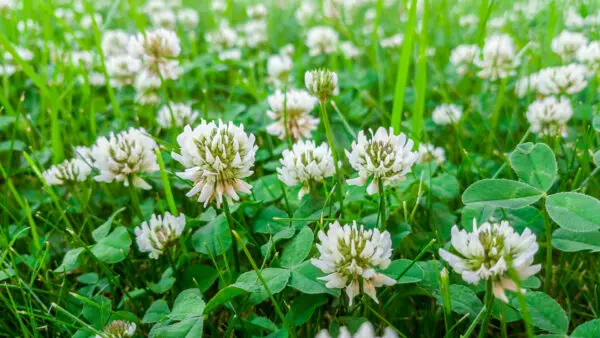Clover can be a nuisance and disrupt the uniformity of a lush green lawn. Although clover is beneficial in certain ways, it may not be welcome by those who strive for a perfect carpet of grass. There are several ways to deal with clover infestations that don’t involve harsh chemicals which could damage your grass. This comprehensive guide will examine various strategies to remove clover without damaging the beauty and health of your lawn.
Understanding Clover It’s important to first understand what clover is before you can begin to remove it. Clover is a member in the legume family and has distinctive trifoliate foliage with small pink or white flowers. Although some homeowners consider clover a weed for their lawns, it has many benefits. Clover can fix nitrogen, which means it can convert atmospheric Nitrogen into a form that plants can use, naturally fertilizing soil. Its deep roots also help improve soil aeration, and moisture retention.
Clover can be unattractive to those who want a lawn with a uniform texture. Many homeowners find it annoying because of its rapid spread and the ability to compete with grass under certain conditions.
Clover removal without chemicals:
- Manual Removal:
Hand-pulling is one of the easiest ways to remove clover. This method works best for small clover patches or isolated plants. Wait until the soil has become moist after rain or watering to do this. Grab the base of the plant and gently pull it, making sure to remove as much root as possible. Monitor the area to ensure that there is no regrowth. Repeat the process if necessary. - Mowing practices:
Changing your mowing techniques can help you control clover growth. Maintaining your lawn at an increased mowing level, usually 3 to 4 inches high, will encourage the grass to shade the clover out and to compete more effectively with it for resources. Sharpen your mower blades regularly to get a clean, efficient cut. This will reduce stress on the grass, and encourage healthier growth. - Improve Soil Conditions:
Since clover grows in soils with low nitrogen levels, increasing the fertility of your lawn will help to discourage its growth. Test the soil to determine its pH and nutrient content, then add organic fertilizers and compost as needed. Avoid synthetic nitrogen-rich fertilizers, which can promote clover growth. - Overseeding:
Overseeding is the process of spreading grass seeds over an existing lawn to cover bare patches, and to compete with weeds such as clover. Follow proper seeding techniques for optimal germination. Choose grass types that are well suited to your soil and climate. Water the newly seeded area regularly to encourage establishment and beat out the clover. - Cultural Practices:
Implementing cultural practices will also maintain a healthy yard and reduce clover invasions. Regular watering is necessary to keep the lawn hydrated. Aerating the soil will improve drainage and root development.
Chemical-Free Alternatives There are many eco-friendly alternatives that will effectively control clover and not harm the grass surrounding it.
- Vinegar solution:
You can create a simple herbicide at home using vinegar. It is acidic, and will kill clover when it comes into contact. White vinegar can be mixed with dish soap as a surfactant to help the solution adhere to clover leaves. Spray the vinegar solution on the clover leaves using a sprayer. Be careful not to spray other plants. - Boiling water:
Pouring boiling hot water on clover infested areas is another natural herbicide. This method scalds clover, killing it effectively without damaging the grass. Use caution to avoid burning and make sure that only the clover plant is being targeted. - Corn Gluten Meal:
Corn gluten meal inhibits the germination of weed seeds, including clover. Apply corn gluten to your lawn early in the spring, before clover sprouts. It won’t remove existing clover, but it will help to prevent future infestations.
Clover is a common problem in lawns. To keep yours pristine, you need to combine proactive strategies with consistent maintenance. Homeowners can control clover effectively without harming the health or beauty of their lawn by using non-chemical methods to remove it, improving soil fertility and eco-friendly herbicides. Be patient and persistent with your efforts. Achieving a lawn free of clover may require time and constant attention. You can have a vibrant, lush lawn with the right attitude and dedication.













Comments